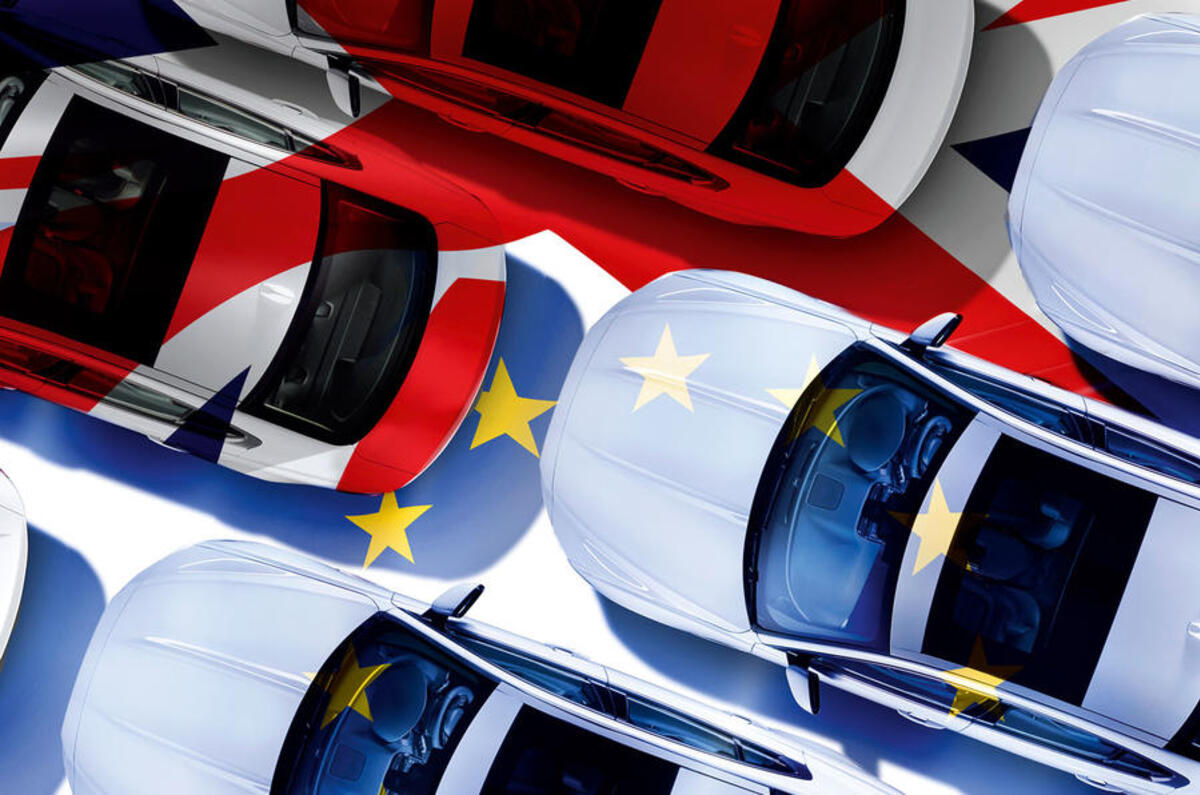The EU has rejected the UK’s bid to have cars made using parts sourced from Japan and Turkey treated as British in a post-Brexit trade deal, a letter sent to UK car makers from the UK’s chief Brexit negotiator reveals.
This means that even if UK prime minister Boris Johnson renegotiates a deal with the EU, the British car industry could still face a hit because such cars might not be considered British made and therefore subject to EU tariffs. Crucially, this remains the case even if the UK government strikes a 'zero-tariff' deal.
In order to qualify as British made and be exported to the EU without tariffs, cars made by UK manufacturers will have to have a specified threshold of British parts, expected to be around half.
The terms of an expected deal with the EU would allow components sourced from EU countries to count as British. However, this privilege does not extend to non-EU countries such as Japan and Turkey.
According to a draft legal text seen by multiple outlets, the UK has requested that manufacturing of electric cars, batteries and bicycles be counted as British even if many of the components used to make them are sourced from elsewhere.
But in a letter to the car industry, Britain’s chief negotiator, Lord Frost, admits that Britain has so far failed to secure the car parts deal it wants and “obviously cannot insist on it”.
The consequences of this could be severe for UK car makers, particularly those that rely heavily on parts sourced from Japan and Turkey, such as Toyota and Nissan.
Mike Hawes, chief executive of The Society of Motor Manufacturers and Traders, said: “The UK government has repeatedly expressed support for our automotive industry as the nation’s biggest exporter of goods.
"Given its importance to the economy and livelihoods and the damaging consequences of tariffs, we need the sector prioritised in negotiations, not traded off against other industries.
"Any agreement must work for automotive so we need both sides to strike a deal that safeguards the global competitiveness of the sector and consumer choice in the market.”
READ MORE
EU automotive bodies call for urgent post-Brexit trade deal
The car industry now: will Brexit's impact now be even greater?




Join the debate
Add your comment
EU?
It does seem like the EU are shooting themselves in the foot here... Honda are going from manufacturing in the UK, Mitsubishi are leaving the whole EU, not even selling cars, and Nissan are joined up with Renault, so presumably (with the EU FTA with Japan) can fill their boots in the EU even without Sunderland. What's left in the UK bar JLR that prduces significant volume is all EU country owned. So if this doesn't impact JLR, who does it impact? And if the EU slap tarrifs on large numbers of cars from the UK, presumably we'd do likewise, and I'm willing to bet that the big German car manufacturers would lose more from that than they'd gain by stoppng the UK from being some cheap inlet to the EU...
The main threat to EU companies right now would appear to be Korean, and so far they've been pretty good at making their cars internally. Europeans generally like European cars, and China just buy the company (Volvo etc.) as even they know we don't like Chinese cars.
So what exactly are the EU negotiators diggng their heels in over? This will all quietly disappear once the boards of MB, BMW and VW have their say.
Problem?
44% of each car is already made in the UK and I would bet there is more than another 6% coming from Europe so is it really a problem?
So EU carmakers do not use non EU components?
Yeah right! So 50% of components in EU built cars originate in the EU? The simple response from the UK should be an equivalent stipulation that all vehicles imported from the EU manufacturers have the same restriction applied. Argument thus negated.